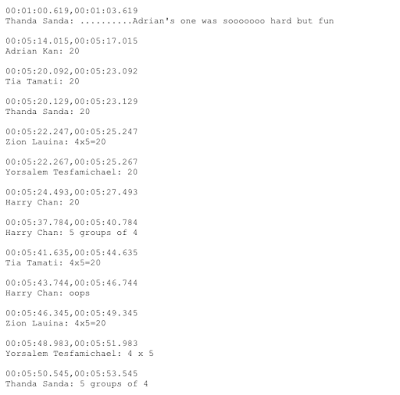Identify informal and formal ways you are monitoring the effects of your changed practices/intervention on learner outcomes. Explain the reflections and tweaks you are making along the way.
- Putting my students at the very centre of their learning and making their learning experiences authentic by designing LCS projects based on their interests and taking into account their identities.
- Scaffolding my learners during their projects by implementing and consistently using the tasks designed to improve their vocabulary, reading comprehension and writing skills.
- Utilizing drama to develop cognitive engagement and critical thinking and raise students achievement in reading and writing.
- Student voice (evidence of their hight engagement and positive attitude towards learning - collected through their blog posts, in-class & online conversations and sticky post-it notes in Term 3. In Term 4 the students will be asked to complete the same google form they did in Term 1 to compare the results/ changes)
- Photos, Videos, their Reading and Writing examples, online and in-class observations - evidence of my students' learning and progress (formative assessments):
- numerous LCS projects
- blogging and commenting, peer and teacher feedback
- maths word problems - incorporating Reading and Writing to gain a deeper understanding and new vocab
- Teaching of making inferences in a fun and engaging way: inferring from a picture, riddles and other activities - genuine interest, high motivation, critical thinking, etc
- Introducing new vocab through topics of their interest and creating situations where they have opportunities to use their new vocab (Kahoot quizzes - students created, Film making, scriptwriting experiences, use of S.Cameron and L.Dempsey activities)
- Drama (lots of reading and writing, problem-solving and KC) - Films for the Manaiakalani FF 2020 will be available on our class blog in T4.
- End of Term 3 data: Running Records and writing samples. All of my Year 3 target students moved up their reading and writing levels despite two lockdowns. All of them are now working at the expected after 3 years at school levels. I look forward to continuing with my inquiry next term and seeing my students' successes.










